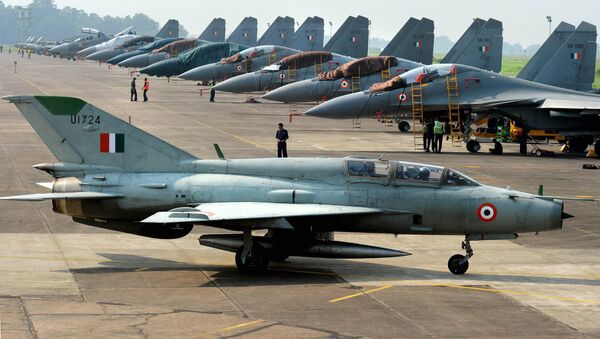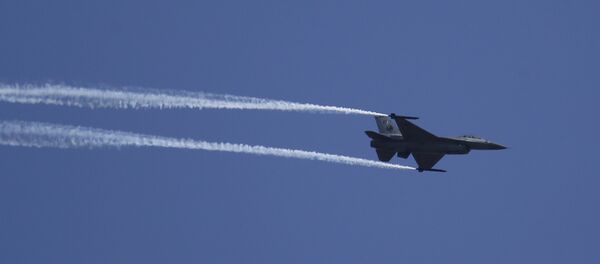If the Indian Air Force (IAF) had high levels of “technological asymmetry”, its warplanes would have been able to inflict heavy damage on Pakistan’s aircraft during a 27 February dogfight, the IAF claimed in a report.
The Times of India cited unnamed government sources as saying that there was a need for India to strengthen its "technological asymmetry” for aerial combat because the Pakistan Air Force has been consistently enhancing its air defence and offensive capabilities.
READ MORE: Pakistan: India Claims F-16 Was Downed for Political Gains as Election Looms
“We felt we could not punish the adversaries appropriately. So we need to bolster technological asymmetry so that the enemy does not even dare to come close to the border”, the sources pointed out.
This followed Pakistan Army spokesperson Major General Asif Ghafoor’s statement earlier this month that India had failed to provide any evidence that one of its PAF F-16 fighter jets had been shot down during the February air battle over Jammu and Kashmir.
“Repetitions don't make truth of a lie. Despite claiming possession of evidence it shot down the F-16, the IAF are still short of presenting it”, Ghafoor tweeted.
The Indian Air Force earlier showed radar images of the air battle between the IAF and a Pakistani F-16 jet, calling it "irrefutable proof" that an F-16 was downed.
READ MORE: Aerial Clash With Pakistan Has Exposed Chinks in India's Armour — Editor
The 27 February air battle came a day after the IAF launched a strike in Pulwama against what New Delhi said was a Jaish-e-Mohammad camp; members of the group are considered terrorists by India and located on Pakistani soil across the so-called Line of Control, separating India- and Pakistan- controlled areas of Kashmir.
READ MORE: Media REVEALS Why India’s Su-30s Failed to Combat Pakistan’s F-16s in Dogfight
The Indian airstrike was preceded by an attack by Jaish-e-Mohammad on an Indian paramilitary police force in Kashmir in mid-February that killed over 40 servicemen. While India accused Pakistan of supporting the militants and having a “direct hand” in the incident, Islamabad rejected the allegations.



